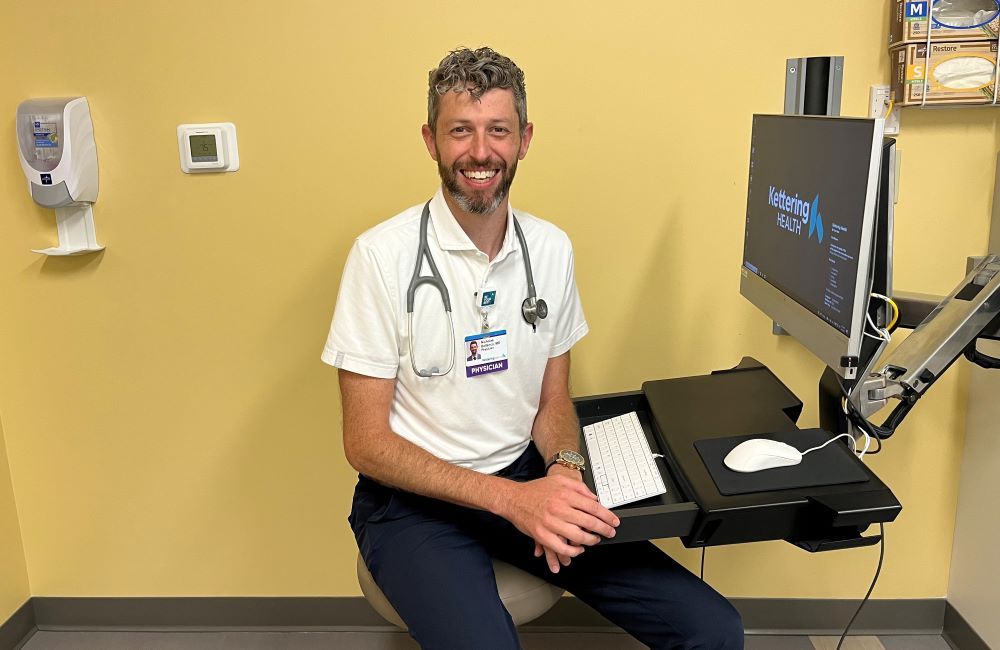Primary Care
Want to learn more about this at Kettering Health?
Before exposing yourself to heat, know how some commonly prescribed and over-the-counter medications might increase your risk for heat exhaustion.
What is heat exhaustion?
Dr. Nicholas Bellanco, a family medicine physician, says that “your body has ways of regulating temperature through sweating and vasodilation. That is where your arteries open more, allowing your body to cool off.” Heat exhaustion happens when your body is pushed beyond the point of regulating its temperature.
And if you’re dehydrated, you’re setting yourself up for trouble. “Your body will try to cool off by sweating, but that further dehydrates you.” If you don’t have enough fluid in your system, your blood pressure will drop. You will start to feel lightheaded, excessively thirsty, and break out in an extreme sweat. More severe heat exhaustion can lead to passing out and significant confusion.
Some common medications can put you at even higher risk for heat exhaustion.
Medications to be mindful of
Nicole Thomas, PharmD, a pharmacist with Kettering Health Medical Group Primary Care, notes that “medications that affect your hypothalamus, which is how your body manages temperature regulation, including many psychiatric medications, can interfere with your perception of heat.”
Diuretics, used to treat patients with heart failure and kidney disease, help rid your body of sodium and water through urine. These, and other blood pressure medications increase your risk for heat exhaustion. “Anticholinergics, medications that dry you out and prevent you from being able to sweat, as well as medications that can decrease your cardiac output or make it harder for your vessels to dilate, can also lead to dehydration.”
Benadryl, Sudafed, and other over-the-counter cough and cold medications decrease vasodilation, one of your body’s ways of regulating its temperature.“Think twice about taking over-the counter-medications that put you at a higher risk of heat exhaustion and dehydration,” says Dr. Bellanco.
What you can do about heat exhaustion
Dr. Bellanco notes that you should never feel thirsty, especially in the summer. So, make sure you drink enough water. But some medications have fluid restrictions. If you are on one of these medications, consult your doctor before changing your fluid intake.
If you experience confusion or other symptoms of heat exhaustion, call 911. “Any episode of passing out needs to be addressed immediately in an emergency room.” If you’re lightheaded, call your primary care physician. Be mindful of the side effects of the medications you’re taking and your fluid intake so you can avoid heat exhaustion.










